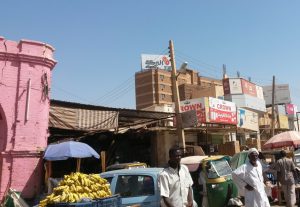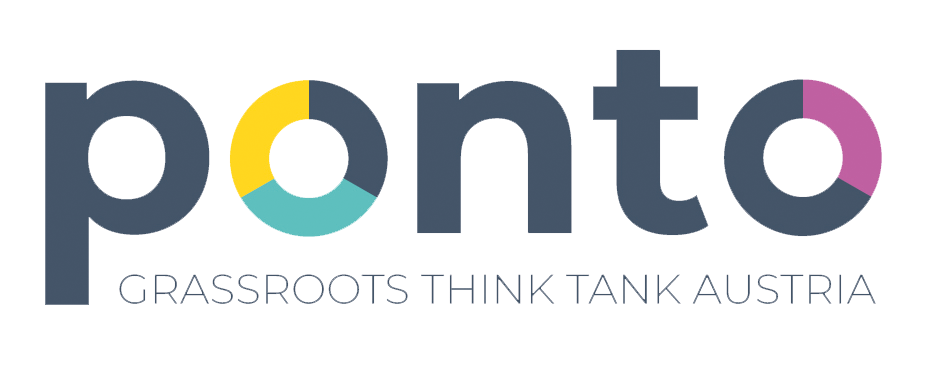
Fifteen months after the revolution that ousted long-term dictator Omar al-Bashir in April 2019, it becomes increasingly evident that Sudan’s two parallel transitional processes of democratisation and peacemaking contradict one another and follow different political logics.
The second year after the removal of the Bashir-regime provides a harsh reality check for Sudan’s transitional endeavour. The democratic transition, based on a fragile compromise between the Sudanese military and the revolutionary Forces of Freedom and Change (FFC), faces significant stumbling blocks. The government under civilian prime minister Abdalla Hamdok has long reached the end of a short honeymoon period. Now, it finds itself on the verge of state bankruptcy and confronted with internal protests and an unfavourable international environment. These challenges take their toll. Hamdok was just forced into a government reshuffle that included a behind-the-scenes deal with one of the traditional political players, the Umma Party, to participate in the government.
Sudan’s transition at a critical juncture
All international partners agree that Sudan finds itself at a critical juncture, and the government needs to deliver in order to uphold its public legitimacy. However, tangible successes are difficult to achieve. An international pledging conference hosted online by Germany on 25 June gathered 1.8 billion US$, effectively little more than short-term life support for the transitional project. Despite its declared willingness to compensate the victims of the 1998 bombings in Nairobi and the 2000 attack on the US combat ship USS Cole, Sudan remains as one of only four countries on the US list of ‘state sponsors of terrorism’. This listing is, de facto, excluding the country from the international financial markets. The whole situation resembles a classic catch-22. Sudan, without any significant reserves in hard international currencies, would need to take up a loan to disburse the compensations as a precondition to re-enter the international financial markets. However, such an admittance to the market, in turn, would be necessary to get such a loan in the first place.
At the same time, the peacemaking efforts of settling the various armed conflicts in Sudan, in particular in Darfur and the so-called ‘new South’, the provinces Blue Nile and South Kordofan, are steadily progressing towards a power-sharing deal. In a remarkable historical twist, the peace negotiations take place in South Sudan’s capital Juba, with South Sudan, the country that split from Sudan in 2011 after a decade-long civil war, in the role of the principal mediator. In early June, with resolution 2524, the United Nations Security Council has established the United Nations Integrated Transition Assistance in Sudan (UNITAMS) to support both the democratic transition and the eventual implementation of the peace process.
Democracy and peacebuilding not mutually reinforcing
Conventional reasoning would assume that Sudan’s ‘twin transition’ – the parallel processes of democratisation and peacemaking – would progress in a mutually reinforcing way. No peace without democracy, no democracy without peace. The processes currently ongoing in Sudan ferociously demonstrate that this attractive, simple logic does not hold water. The negotiations on forming a transitional government after the ousting of the Bashir-regime proceeded without the participation of the armed opposition. It is safe to assume that this was aiding their surprisingly quick, successful conclusion since it significantly reduced the number of political players involved in the rearrangement of the political settlement. However, the trade-off especially the FFC has to face now is its astonishing unpopularity in Darfur, undoubtedly a consequence of side-lining the armed opposition in the negotiations with the military.
While both transitional processes focused and still focus on the usual bargaining on who gets what in terms of political positions and funds, the logics of the peace process and the attempt of democratisation initiated by the FFC-led revolution are fundamentally different. In the framework suggested by Acemoglu and Robinson, the Sudanese democratisation indeed aims to exploit the critical juncture the country finds itself in to trigger a process of developing inclusive political institutions. This transformation would require a sharp break with the extractive political marketplace logic Sudan was based upon during the Bashir-years when all political players carefully planned their operations based on the possible financial and political revenues for themselves and their core constituencies. Even in the face of experienced strongmen such as the Darfurian military commander Hemeti, who is not only in charge of the elite troops of the Sudanese military but also controls Sudan’s gold trade, the Hamdok government seems willing to work towards overcoming these extractive traditions of Sudanese politics.
Ironically, the peace logic plays into Hemeti’s cards. The peace process and the actors involved in it habitually rely on the logic of extractive institutions. Following de Waal, especially Darfur resembles the ‘perfect’ political marketplace, with also the long-standing armed opposition predominantly looking for positions and revenues to extract the maximum possible out of a cake which is, unfortunately, not yet existing. Nevertheless, the outcome of the Juba talks will likely construct a formalised political unsettlement based on a power-sharing deal that will rest upon an extractive sharing of short-term political marketplace revenues among the negotiating parties. Thus, in an odd turn of events, especially the armed Darfurian opposition engaged in the Juba peace talks bears more structural similarities to their (former) deadly enemy Hemeti than to the FFC and the civilian technocrats around Hamdok.
The South Sudanese mediation is not without its own interest and very much on board with the extractive logic of traditional Sudanese peacemaking. Chief mediator Tut Kew Gatluak, a security advisor to South Sudanese president Salva Kiir, is a long-term friend and collaborator of the ousted Sudanese president Bashir. He is also an ally of military strongmen Hemeti, whose predominant focus is on safeguarding his apparent business interests particularly in the Darfur stream of the peace negotiations.
Navigating structurally opposing logics
The overall constellation, therefore, is paradox. While the Hamdok government still aims for a structural transformation towards a renewed political settlement based on inclusive institutions that supersede the violent transactional marketplace politics of the traditional elite, it has not only to face the concrete resistance by military strongmen, but also the structurally opposing, extractive logic of peacemaking. In astonishing ignorance of these factors, UNITAMS’ mandate rests on the conventional approach of ‘compromised peacebuilding’ that attempts to please all sides while eschewing any potentially unpopular decision-making. Against this background, it is safe to assume that an eventual Sudanese comprehensive peace agreement will complicate the formidable task to revolutionise Sudanese political settlements towards inclusive political institutions even more.
The Hamdok government and its remaining international supporters find themselves between a rock and a hard place. A Sudanese peace deal is certainly possible and, despite a number of strategic delays, looming. Yet, it will be precisely this peace deal that is going to strengthen the military players and the experienced players in the political marketplace. While the conjunction between both strands of Sudan’s ‘twin transition’ is necessary, it is likely to weaken further the transformative agenda, which represented the initial entry point of the Hamdok government. For like-minded supporters, therefore, it is pivotal to hold the armed opposition accountable to the principal aims of the democratic transition, especially after a peace deal finally has been signed. As much as the process is about ending armed violence, it is about turning the players in the respective regions from armed to political ones. This transition, however, might feel for some of them like a devastating loss on the battlefield, since it would require a decisive move away from the extractive marketplace logics their institutional political project has traditionally been based upon.
The European Union has so far offered predominantly logistical support to the Juba talks. It has, for instance, provided a teleconferencing system that enabled the continuation of the negotiations during the ongoing Covid-19-crisis. Virtual diplomacy has shown severe disadvantages, however. The informal talks, traditionally of crucial importance in Sudanese negotiations, could not progress as usual. Making these vital informal talks more inclusive are also one of the probably most useful entry points for a sustained EU engagement. As soon as the situation allows, gatherings involving the main stakeholders of both the peace process and the democratisation can result in an increased mutual ownership of the institutional transition. Besides making use of its diplomatic power to facilitate Sudan’s removal from the US terrorism list, funding and facilitating such events are one of the main contributions the EU might have to offer in supporting Sudan’s twin transition.

Jan Pospisil is Research Director at the ASPR – Austrian Study Centre for Peace and Conflict Resolution and an Associated Professor at the University of Vienna. He is also part of the Political Settlements Research Programme (PSRP), located at the University of Edinburgh.
